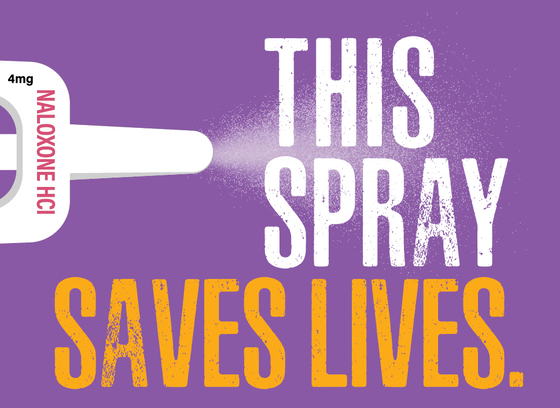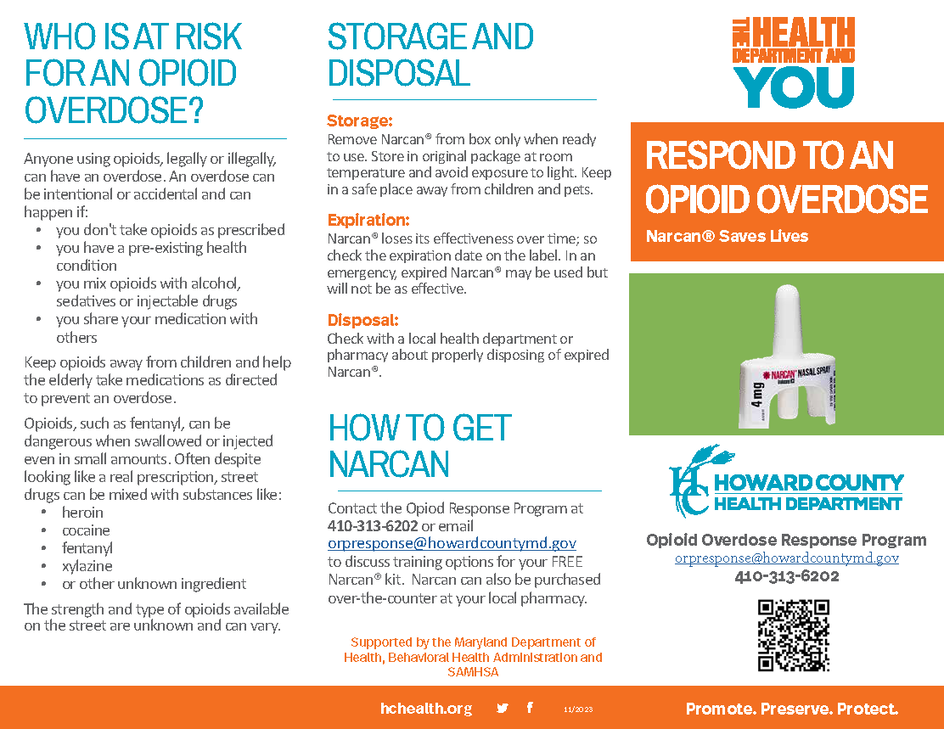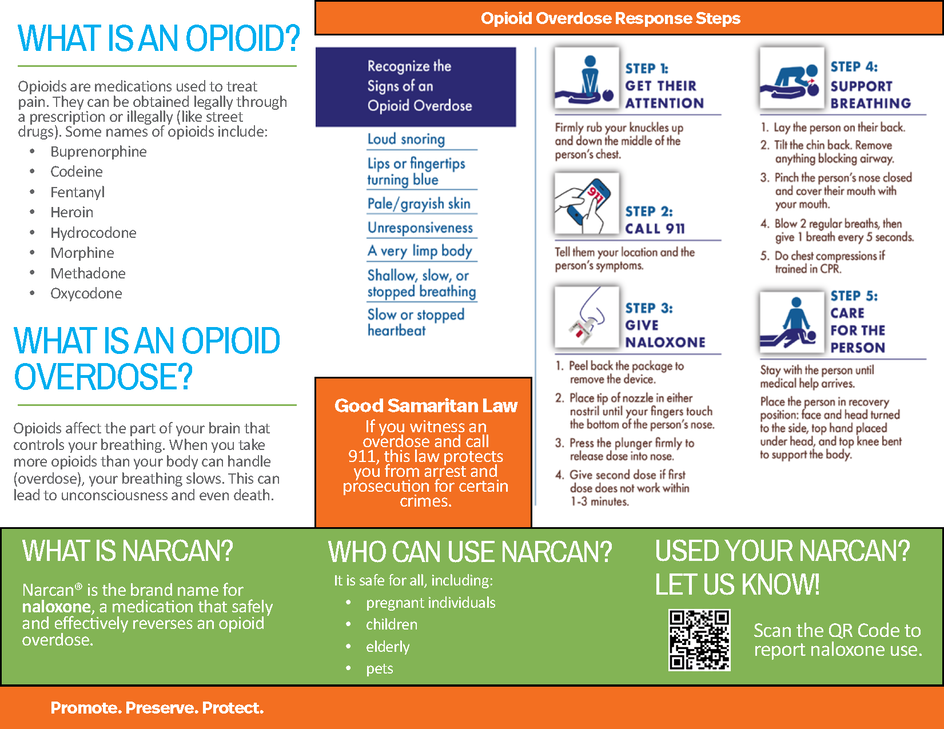ORP Program
The ORP leads and coordinates Narcan trainings, conducts community outreach efforts, and provides overdose prevention strategies and support.

Narcan Training
The Howard County Health Department offers free virtual training on the use of Narcan, which you can do at your convenience using the registration link below.
In-person Narcan training and distribution is also available on Tuesdays and Thursdays from 10am to 2:00pm at the HCHD mobile health van parked on the right-hand side of the Health Department located at 8930 Stanford Blvd. Columbia, MD 21045.
Call our Office of Behavioral Health at 410-313-6202 or email orpresponse@howardcountymd.gov for more information.
Use the link below to register for FREE Narcan on demand training.
| Opioid Overdose Prevention | Registration Link |
|---|---|
| Narcan Training | Register Here |
What are opioids?
Opioids or opioid-based drugs include: morphine, heroin, oxycodone, fentanyl, Duragesic, hydrocodone, Norco, Vicodin, hydromorphone, Dilaudid, Astramorph, Avinza OxyContin, Percocet.
Prescription opioids are used to treat pain. Overdose can lead to a loss of alertness, unconsciousness or even death.
What is naloxone?
It is a prescription medicine that reverses an opioid overdose. It cannot be used to get high and is not addictive. Naloxone is safe and effective; emergency medical professionals and doctors have used it for decades.
How does naloxone help?
Opioids can slow or stop a person's breathing, which causes death. Naloxone can help reverse an opioid overdose.
What will training participants learn?
- Types of opioids (heroin and pain medication)
- How to recognize, respond, and prevent an opioid overdose
- Including how to administer intra-nasal naloxone
- Information about Maryland’s Good Samaritan Law
- Resources for you, family members, friends & loved ones
Who can be trained?
Howard County residents (even those under 18).
Learn more about the Maryland Overdose Response Program at: NaloxoneMD.org
Responding to an Opioid Overdose
Naloxone is a prescription medication that reverses an opioid overdose by restoring breathing. Naloxone is safe, even for children and pregnant women, and has minimal side effects (nausea and vomiting). There is no potential for abuse or getting high. Obtain free naloxone medication when you attend a training at the health department and learn to save a life.
For additional information about Naloxone visit the State of Maryland Overdose Response Program page.
How to Become an Overdose Prevention Program (For Providers)

